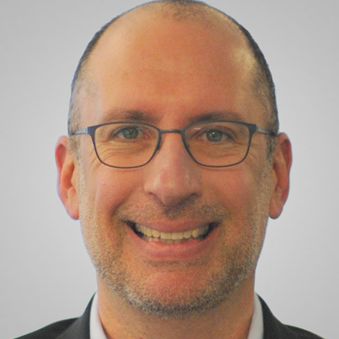
Food and housing insecurity, lack of access to technology, and inadequate access to healthcare are just some of the issues vulnerable students are facing. COVID-19 didn’t create these issues, it merely exposed them.
Educators have always worked to support the non-academic needs of children so that they can succeed in school and in life. Now, teachers, administrators, and other district leaders are being presented with an opportunity and challenge to address the issue of equity in our schools while also addressing students’ social-emotional and behavioral needs.
Here’s one way to get started.
First, educate the educators.
Most teachers, no matter their gender or race, believe in their students and work hard every day to support them. But, it’s important to recognize that we’re still working in a system that’s designed in a way that makes it difficult to ensure every student is supported.
It’s up to us to understand the problem so that we can help find a solution. We can start by reading and learning together. Here are some resources to get you started:
Reading list:
- Ivory Toldson’s No BS (Bad Stats)
- Bettina Love’s Education Week column
- Robin DiAngelo’s White Fragility
- Michelle Alexander’s The New Jim Crow
- Dena Simmons’ EdSurge article
- Cierra Kaler-Jones’ Medium column
Training and development resources:
- Getting Smart’s equity work series
- Teaching Tolerance’s self-guided learning
- ASCD equity in education materials
- Common Sense Education’s diversity, equity and inclusivity resources
Next, avoid the “invisible tax”.
In 2016, John King penned a powerful op-ed bringing attention to the “invisible tax” – the additional pressure placed on educators of color to be the sole explainer and/or interventionist with students and families of color. White teachers have a responsibility to learn about the impact of institutional racism and to use anti-racist actions rather than passing the work along.
It is our responsibility to support our colleagues, our students, and their families.
Now, create an inclusion-focused culture.
It’s important to activate students and engage them in this process. When I was a superintendent, I challenged my principals to improve relationships with students, with a goal of creating better climates. One of our fabulous principals took initiative and engaged kids in the effort. She and her faculty learned from students that adults were escalating minor issues by taking it personally. Their school started a new model, called the “Q-Tip” or “Quit Taking It Personally”, which focused on adult responses to student behaviors.
The Q-Tip model resulted in a dramatic reduction in suspensions and a better overall school culture. You can read more about the Q-Tip model here, and find our results here.
I also recommend educators work to analyze data using an equity lens. Kristen Rockwell provides actionable advice for having constructive conversations about this topic in an Illuminate Education blog post.
More from DA
Finally, collaborate with your community.
Oftentimes, extracurricular programs, community agencies, and other local organizations have deeper relationships with students and families than those established at schools. I encourage anyone reading this to harness the power of those relationships, and leverage them.
By inviting community leaders and organizations into the conversation, educators can not only learn new practices but show students that there’s an entire community full of adults who want to support them.
At the end of the day, educators want to do what’s best for our students.
Most, if not all, of us pursued a career in education so that we can support our students, help them grow, and ensure they are set up for success.
The bottom line is that until we solve inequities in our education and other systems, we can’t support every student. One small, silver lining of the COVID-19 crisis may be a collective understanding and acknowledgment that some students and families are suffering more than others.
That knowledge needs to be used and acted upon by all who are privileged to serve our children, families, and communities through education.
As I shared earlier this year, as a lifelong educator and the CEO of PDK International, I am firmly committed to the belief that education is the foundation upon which collective healing and change will be accomplished. Our teachers, administrators, and school staff, standing in solidarity with social justice activists, policymakers, elected officials, families, and youth, can help us not only to understand why we find ourselves in this situation once again, but what we can do to change America for the better.
There isn’t a one-size-fits-all approach to solving these issues. It takes time and effort. It’s time to take a step back, confront our personal beliefs, and fix our blind spots so we can fill in – not just bridge – gaps in our education system.
Dr. Joshua P. Starr has been the Chief Executive Officer of PDK International since July 2015. Since then, PDK has relocated its headquarters to Arlington, VA and celebrated 50 years of the PDK Poll and 100 years of Kappan magazine. Under Dr. Starr, PDK has expanded Educators Rising across the nation, including launching Educators Rising Collegiate, increased foundation support for its programs, and renewed support for PDK members and other educator scholars. He is the author of numerous essays, book chapters and op-eds and writes a monthly column, “On Leadership,” for Kappan. Prior to joining PDK, Dr. Starr was superintendent of schools in Montgomery County Public Schools in Maryland for nearly four years and previously superintendent of schools for Stamford, Conn., for six years. Dr. Starr began his career teaching special education in Brooklyn, N.Y. He became a central office leader in school districts in the NY metropolitan area and served in the New York City Department of Education.









